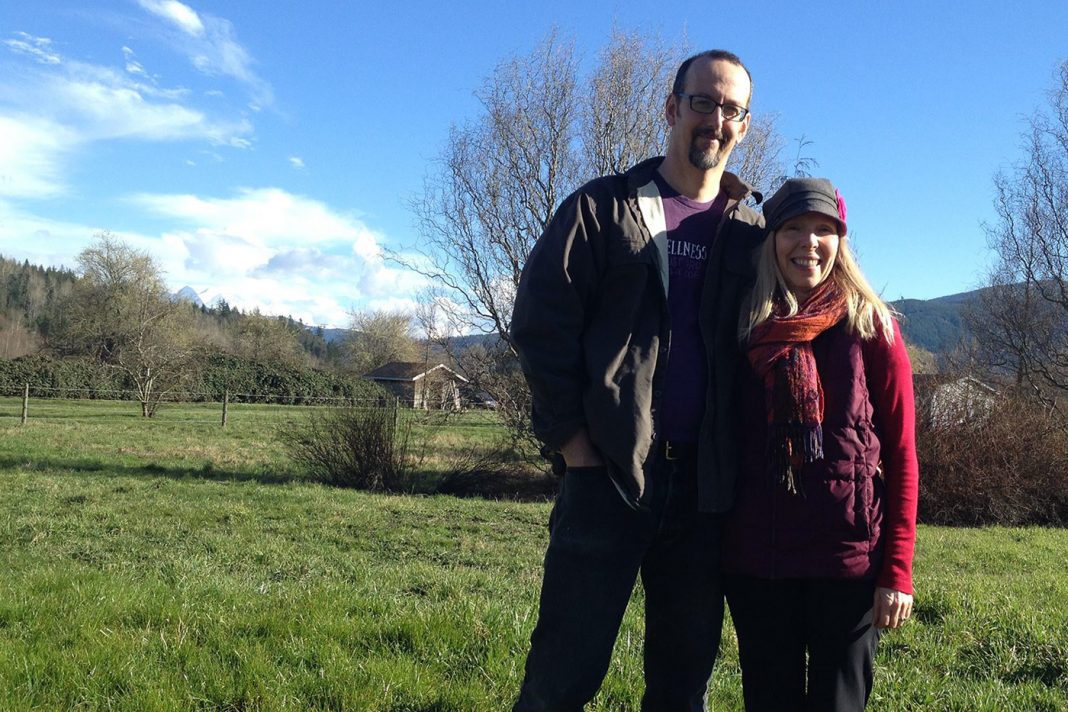Did you know that Whatcom County produces almost 85 percent of our nation’s red raspberries? The county is also known for its blueberry and strawberry production.
Whatcom County farms are diverse—some large and some small. A few, like Pollen Folly Farm, are less than 10 acres.
Pollen Folly Farm is a family-run farm growing on one-and-a-half acres in Everson, Washington. This organic and biodynamic farm produces a variety of vegetables, culinary herbs, organic eggs and berries.
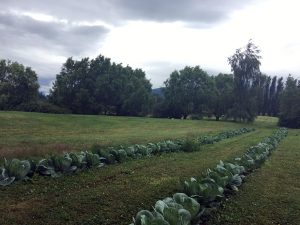
Kelly Uusitalo owns and runs Pollen Folly Farm with her husband, Mike. The two are both graduates of Washington State University’s organic farming program and come to farming with a bird’s eye view, a whole-system approach to what they do. Rather than growing one kind of berry, their focus is growing a variety of crops in a way that maintains the health of the water, the soil and the insects that live there.
Like all farming, berry production doesn’t come with great job security, and most farms are dependent on chemical fertilizers and pesticides to be able to bring huge harvests to market each season.
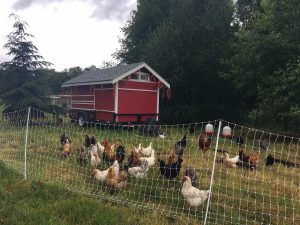
We’re in the middle of Whatcom County berry season right now, with peak strawberry season in June and blueberries and raspberries reaching their peak in mid-July. Because of the short growing season and the fruit’s susceptibility to pests, for smaller, organic farms like Pollen Folly, it’s essential to grow other things along with the berries.
Small fruits, like raspberries and blueberries, are very vulnerable to a species of fruit fly called the spotted wing drosophila. The flies have tiny saw-like pokers that allow them to drill into the fruits and lay their eggs in the bottom, quickly decimating entire harvests.
The fruits also depend on a pretty consistent weather pattern. This year, a warmer-than-usual January followed by a cold and windy February damaged many Whatcom County raspberry plants. The blueberry plants are a little heartier and seemed to have fared better.
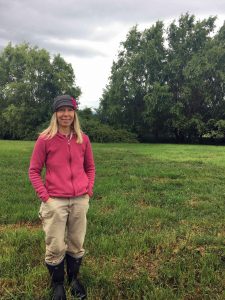
“Because of the instability and the changing of the climate, we’re getting this erratic weather that makes for more pathogenic issues,” Uusitalo says. “It’s really easy to lose a crop really fast.”
Growing a variety of fruits and vegetables is one way to protect against losing a whole harvest.
Uusitalo sells her berries and produce at the Birchwood Community Farm Stand and the Bellingham Farmers Market. This is the first year she has a booth at the downtown market.
“The farmers market has been great,” Uusitalo says. “When you spend a lot of time growing things, a lot of your sweat and labor and love goes into growing the produce, so it’s nice when you see it going to people and you see it going to kids—to growing these healthy little beings—that’s what we’re about.”
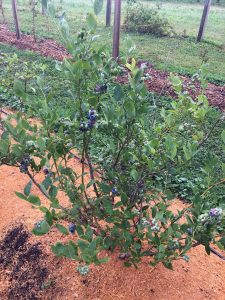
Besides selling at the two markets, Uusitalo is very involved in efforts to increase food security within the Mount Baker School District. She partnered with local nonprofit Common Threads to build a garden at Harmony Elementary School and implement Common Threads’ programming there, which provides garden lessons and cooking classes to all students from kindergarten through sixth grade.
Pollen Folly Farm donates food for the cooking classes.
“That’s one of my big commitments,” Uusitalo says. “We do a lot with trying to work with nonprofits and support what they do. It’s important to me that we build healthy eaters.”
Outside of the school district, Uusitalo and her husband are committed to addressing food security in their neighborhood and town more broadly.
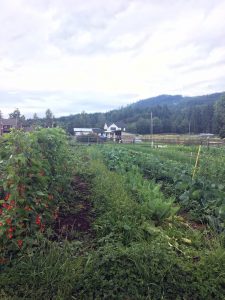
Through a grant from Sustainable Connections and another from Community Action of Skagit County, Uusitalo sells and donates produce to local food banks. Through the Sustainable Connections grant, she receives money that essentially subsidizes her costs so she can sell to local food bank partners at market rates. The other grant provides capital for infrastructure projects, and Uusitalo pays the grant back by growing food for food banks and other nonprofits.
Uusitalo and Mike run their farm along with help from their 10-year-old son, Quinntin. They bought their land in 2011, and not long after, Uusitalo’s parents moved in next door. They grow produce on their land as well as a portion of her parents’.
While the family hasn’t been farming the same plot of land for decades, they are decades-long berry farmers. The raspberry plants themselves were Uusitalo’s grandmother’s plants, giving multigenerational farming here a double meaning.
Featured photo courtesy of Pollen Folly Farm




























